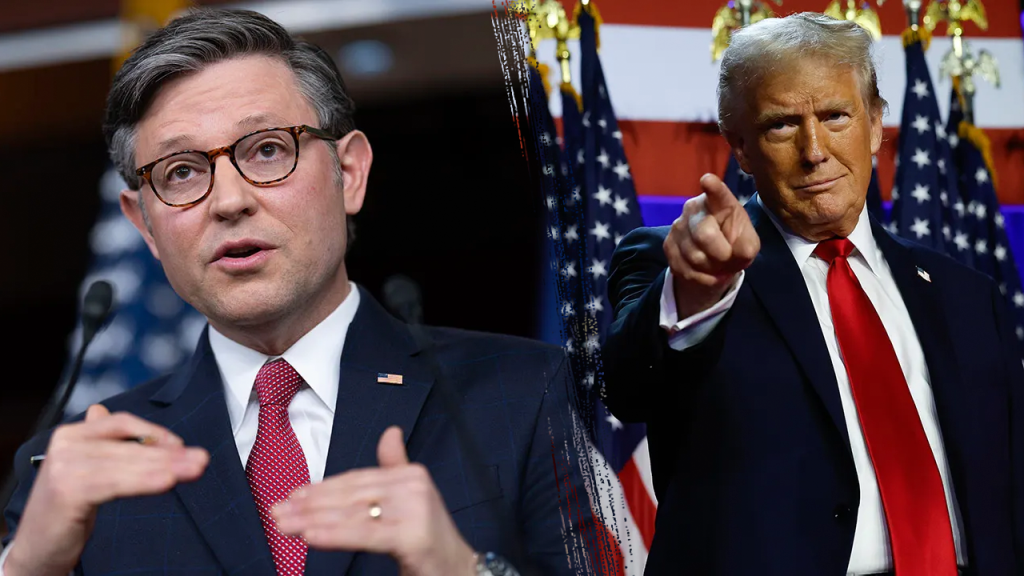The election of Mike Johnson as Speaker of the House, initially anticipated to be a protracted and contentious affair, ultimately concluded swiftly and decisively, largely due to the influential intervention of former President Donald Trump. Johnson’s victory, secured in a single round of voting, followed a brief period of uncertainty where three Republican representatives – Ralph Norman of South Carolina, Keith Self of Texas, and Thomas Massie of Kentucky – cast their votes for alternative candidates, seemingly jeopardizing Johnson’s bid for the speakership. However, before the vote was formally finalized, a series of behind-the-scenes maneuvers, orchestrated in part by Trump, dramatically shifted the trajectory of the election.
Key to this shift was Trump’s direct communication with Representatives Norman and Self. Following their initial votes against Johnson, the two congressmen were seen conferring with Johnson and other colleagues in a private room off the House floor. This meeting, facilitated by Representative Nancy Mace of South Carolina, proved pivotal as it connected Trump with Norman and Self via telephone. These conversations, described as “lively” by Self, played a crucial role in persuading the two holdout representatives to switch their votes in favor of Johnson. The influence of Trump’s intervention was palpable, underscoring his continued sway within the Republican party.
Following the phone calls, both Norman and Self publicly confirmed their conversations with Trump and subsequently announced their intention to support Johnson. This shift effectively solidified Johnson’s victory, averting the need for a second round of voting. The rapid turn of events highlighted the effectiveness of Trump’s intervention, transforming a potentially drawn-out contest into a swift resolution. The role of Representative Mace in brokering the communication between Trump and the dissenting representatives further emphasizes the importance of behind-the-scenes negotiations in shaping political outcomes.
The swift resolution of the speakership election, largely attributed to Trump’s intervention, reflects a desire within the Republican party to avoid a protracted internal struggle. The initial dissent from Norman, Self, and Massie underscored lingering divisions within the party. However, the ability to swiftly coalesce around Johnson following Trump’s intervention suggests a pragmatic approach to maintaining party unity, particularly in the face of potential legislative challenges. The episode highlights the complex interplay of personal relationships, political maneuvering, and the enduring influence of key figures like Trump within the Republican party.
The events surrounding Johnson’s election underscore the ongoing significance of Trump’s influence within the GOP. Despite no longer holding public office, Trump remains a powerful force, capable of shaping political outcomes and influencing the decisions of elected officials. His intervention in the speakership election served as a stark reminder of his enduring political capital and his ability to rally support for preferred candidates. The episode also highlights the challenges facing the Republican party as it navigates internal divisions and seeks to establish a cohesive legislative agenda.
Looking forward, Johnson’s election as Speaker signifies a new chapter for the House of Representatives. His ability to secure the speakership with Trump’s backing suggests a potential alignment between the two figures, which could have significant implications for the future direction of the Republican party. The swift resolution of the speakership election allows the House to proceed with its legislative agenda, although the underlying divisions within the Republican party may continue to surface on key policy issues. The role of Trump as a kingmaker within the party remains significant, and his continued influence will likely shape the political landscape in the months and years ahead.

